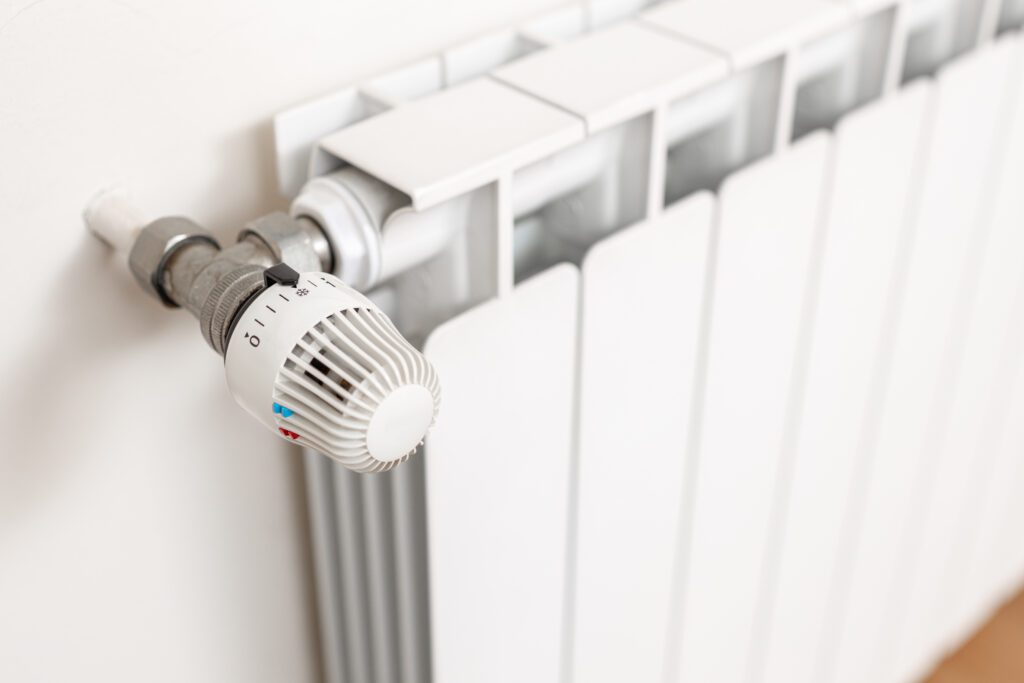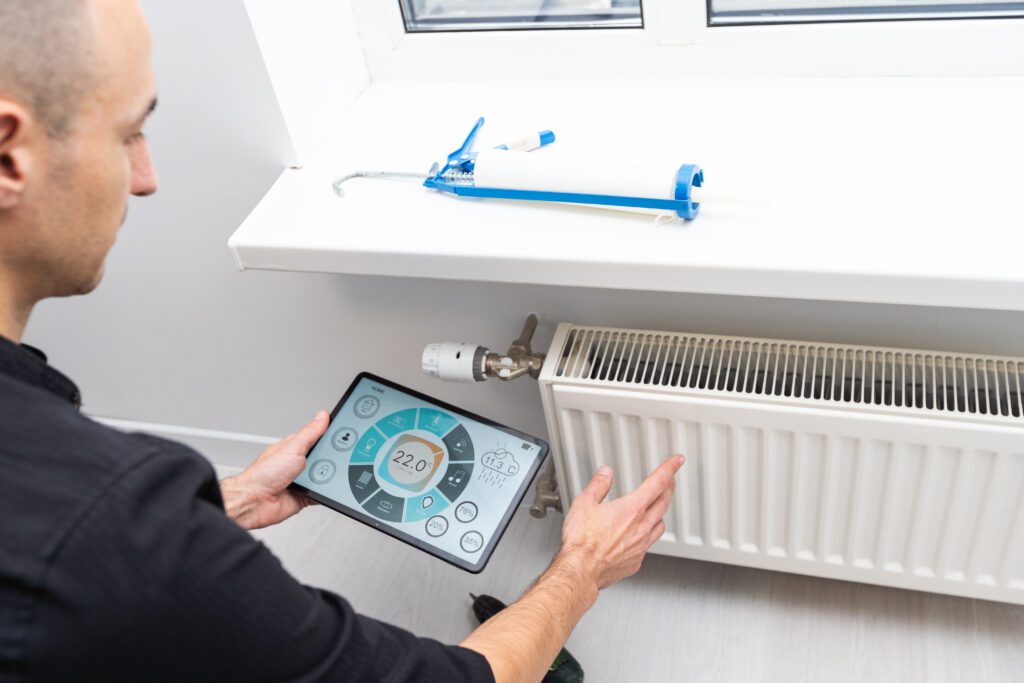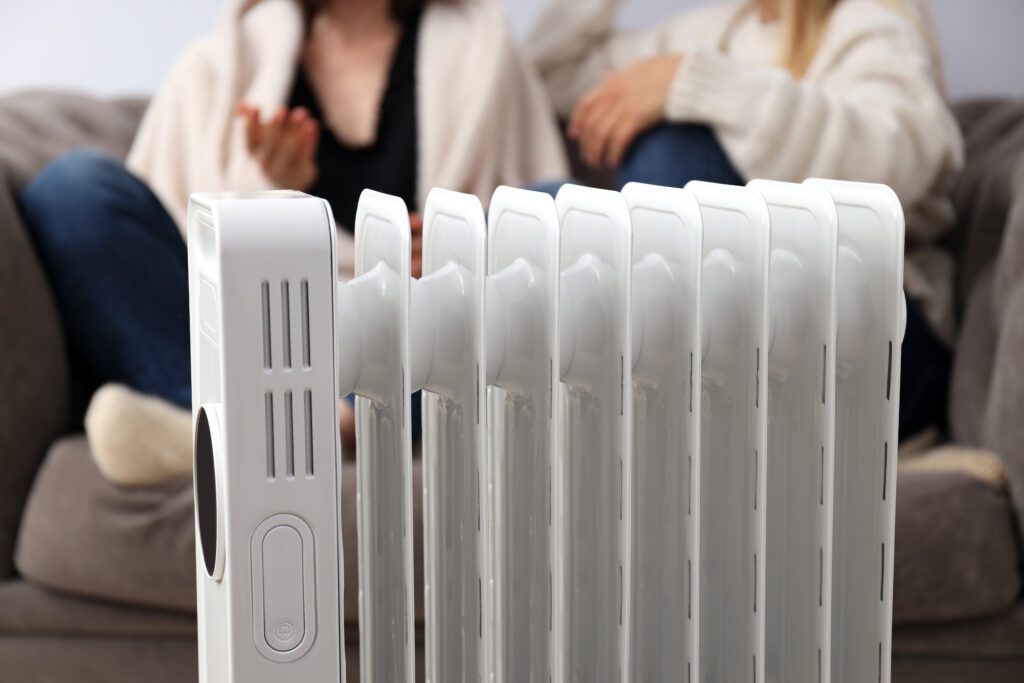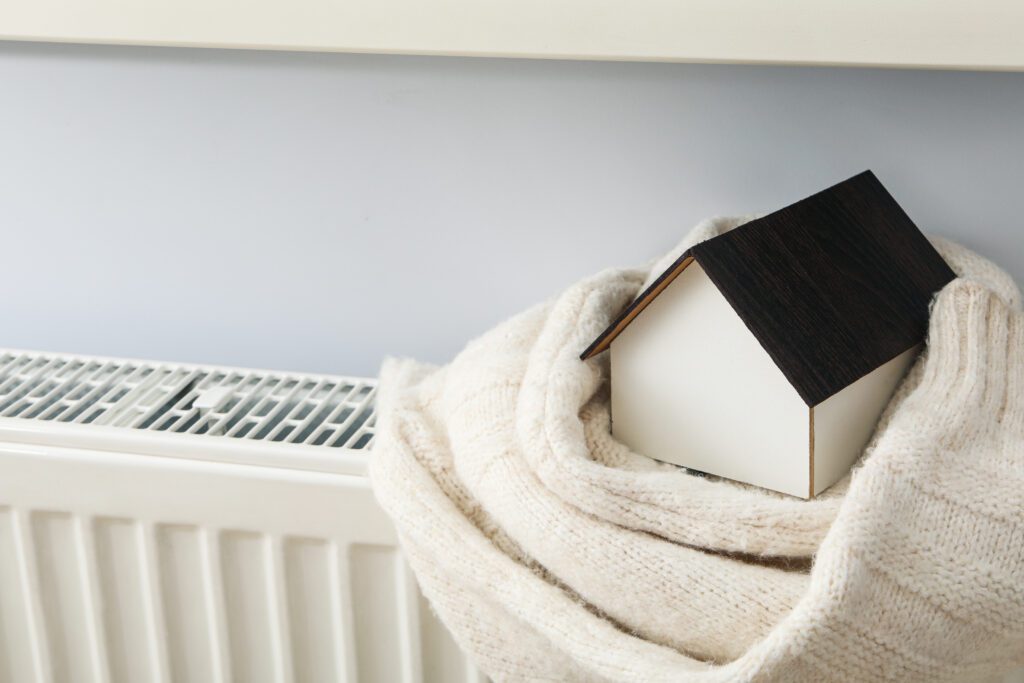As winter approaches in Martinsburg, WV, homeowners are looking for effective ways to keep warm while minimizing their impact on the environment. This article will explore various eco-friendly heating solutions available to residents, emphasizing the importance of sustainability in home heating. By understanding the benefits and options available, homeowners can make informed decisions that balance comfort and environmental responsibility.
Understanding the Importance of Eco-Friendly HVAC Solutions
The HVAC (Heating, Ventilation, and Air Conditioning) industry has a significant impact on energy consumption and greenhouse gas emissions. Traditional heating systems often rely on fossil fuels, contributing to air pollution and climate change. As awareness of environmental issues grows, the shift towards eco-friendly HVAC solutions has gained momentum.
Using sustainable heating solutions not only helps reduce your carbon footprint but also promotes energy conservation. Investing in eco-friendly HVAC systems can lead to lower energy bills, improved indoor air quality, and a reduced dependency on fossil fuels. With these benefits in mind, it’s essential to understand the potential impact of traditional heating methods.
The Environmental Impact of Traditional Heating Systems
Traditional heating systems, such as furnaces and boilers that burn oil or natural gas, are major contributors to environmental pollution. The combustion of these fossil fuels releases greenhouse gases, including carbon dioxide (CO2) and methane (CH4), which trap heat in the atmosphere and exacerbate climate change.
Furthermore, these systems can also generate local air pollutants, leading to health issues in the community. The extraction and transportation of fossil fuels involve significant emissions, making their overall lifecycle detrimental to both the environment and public health. In addition, the infrastructure required to support fossil fuel heating systems can lead to habitat destruction and biodiversity loss, further compounding the environmental crisis we face today.
The Benefits of Eco-Friendly Heating for Your Home
Eco-friendly heating systems offer a multitude of advantages over conventional systems. First and foremost, they often utilize renewable energy sources, such as solar, wind, or geothermal energy, which reduces reliance on fossil fuels. By leveraging these sustainable resources, homeowners can significantly decrease their carbon emissions.
In addition to environmental benefits, eco-friendly HVAC systems can also lead to substantial savings on energy bills. Many energy-efficient technologies consume less electricity while providing the same or even enhanced levels of comfort compared to traditional systems. Moreover, some installations might qualify for government incentives, further reducing their financial burden. Beyond cost savings, these systems often require less maintenance and have longer lifespans, making them a wise investment for the future. Homeowners can also enjoy the peace of mind that comes with knowing they are contributing to a healthier planet, as well as a more sustainable community. As the demand for eco-friendly solutions continues to rise, the market for innovative technologies is expanding, offering even more options for those looking to make a positive change in their heating practices.
Exploring Different Types of Eco-Friendly HVAC Solutions

There are several types of eco-friendly HVAC solutions to consider when upgrading or replacing your heating system. Each option comes with its unique benefits and suitability depending on your home’s specific characteristics and heating needs.
Geothermal Heating Systems
Geothermal heating systems harness the Earth’s natural heat by utilizing a series of underground pipes filled with fluid. This system transfers heat from the ground into your home during the winter months. Geothermal systems are extremely efficient, often providing up to four units of heat for every unit of electricity consumed.
In addition to their efficiency, geothermal systems are durable and require less maintenance than traditional heating systems. Given the stable temperature underground, they provide consistent heating regardless of external weather conditions. Moreover, the installation of a geothermal system can increase your property value, as more homebuyers are looking for energy-efficient features. Additionally, many states offer tax incentives and rebates for homeowners who invest in geothermal technology, making it a financially attractive option in the long run.
Solar Powered Heating Systems
Solar-powered heating systems convert sunlight into usable energy for heating purposes. Solar collectors installed on your roof collect sunlight and convert it into thermal energy, which can be stored for later use or used directly to heat your home.
These systems can drastically reduce energy bills and have a minimal environmental impact. Furthermore, advances in technology have made solar systems more affordable and accessible, making them a viable option for many homeowners in Martinsburg. With the ability to integrate with existing heating systems, solar heating can serve as a supplementary source of energy, enhancing overall efficiency. Additionally, homeowners can monitor their energy production and consumption through smart technology, allowing for better management of energy usage and further cost savings.
Energy-Efficient Heat Pumps
Energy-efficient heat pumps can both heat and cool your home, making them a versatile choice for year-round comfort. These systems work by transferring heat from the outside air or ground into your home, rather than producing heat through combustion.
Heat pumps are highly efficient and can reduce energy consumption by up to 50% compared to traditional heating systems. In addition, many models are designed to operate efficiently even in low outdoor temperatures, which is particularly beneficial during the cold winters in West Virginia. The versatility of heat pumps also means they can be used in conjunction with other renewable energy sources, such as solar panels, to create a comprehensive energy-efficient system. Furthermore, advancements in inverter technology allow for variable-speed operation, which means these systems can adapt to your heating needs in real time, providing enhanced comfort and energy savings throughout the year.
How to Choose the Right Eco-Friendly HVAC Solution for Your Home

Determining the best eco-friendly HVAC solution for your home requires careful assessment of several factors. Understanding your home’s heating needs and evaluating the potential options can ensure you make the most informed decision possible.
Assessing Your Home’s Heating Needs
Before selecting an eco-friendly heating system, begin by assessing your home’s current heating requirements. This includes measuring the size of your home, evaluating insulation levels, and understanding how each room is used in terms of heating preferences.
Calculating the total square footage and identifying any hot or cold spots can help guide your choice of system. Consulting an HVAC professional for an energy audit may also provide insights into the most efficient solution based on your specific circumstances. Additionally, consider how many windows and doors you have, as these can significantly impact your heating needs. Older homes may require more attention to insulation and sealing to prevent heat loss, while newer constructions often have better energy efficiency built into their designs.
Considering Your Budget and Long-Term Savings
Your budget is a crucial factor when selecting an eco-friendly HVAC system. While some systems may have higher upfront costs, they often offer savings in energy bills and maintenance over time. Calculate the payback period for each option and consider financing options, rebates, or incentives that might be available.
Understanding the long-term financial benefits of investing in an eco-friendly system can help justify the initial expense. Keep in mind that durable systems typically require lower maintenance, which also contributes to long-term savings. Moreover, some eco-friendly systems, such as high-efficiency furnaces or heat pumps, may qualify for tax credits or local utility rebates, further reducing the overall investment. It’s also worth exploring the potential increase in property value that comes with installing energy-efficient systems, as many homebuyers are now prioritizing sustainability in their purchasing decisions.
Evaluating the Climate and Sunlight Exposure in Martinsburg, WV
Finally, take into account the local climate and the specific characteristics of your home when choosing an eco-friendly HVAC solution. Martinsburg experiences cold winters, so select a system that performs optimally in lower temperatures.
Also, consider the amount of sunlight your home receives, particularly if you’re interested in solar heating systems. Homes with good sun exposure may benefit more from solar heating technologies, while others may find geothermal or heat pump systems more effective. Additionally, it’s important to think about seasonal variations in temperature and how they affect your heating needs throughout the year. For instance, during particularly harsh winters, a backup heating system might be necessary to ensure comfort. Understanding the seasonal dynamics of your region can help you choose a system that not only meets your needs but also operates efficiently year-round, maximizing both comfort and energy savings.
Maintaining Your Eco-Friendly HVAC System for Optimal Performance

Once your eco-friendly HVAC system is installed, regular maintenance is essential for optimal performance. By adhering to maintenance guidelines and implementing energy-efficient practices, homeowners can ensure their systems operate smoothly throughout the winter months.
Regular Maintenance and Servicing
Routine maintenance is crucial in extending the life of your heating system and enhancing its efficiency. Schedule regular inspections with a qualified technician to address any potential issues before they become significant problems.
Cleaning and replacing air filters, checking ductwork for leaks, and ensuring thermostats are functioning correctly are all essential maintenance tasks homeowners should prioritize. Such practices can improve energy efficiency and reduce costs. Furthermore, keeping an eye on the system’s refrigerant levels and ensuring that the exterior unit is free of debris can significantly impact the overall efficiency of your HVAC system. A well-maintained system not only operates more efficiently but also contributes to a healthier indoor air quality, which is particularly important during the colder months when windows are often closed.
Energy-Efficient Practices for Homeowners
Additionally, homeowners can adopt energy-efficient practices to complement their heating systems. Simple adjustments such as sealing windows and doors, using programmable thermostats, and utilizing thermal curtains can enhance indoor comfort while reducing energy consumption.
Encouraging family members to dress warmly indoors and limit the use of heating in unused rooms can also contribute to maintaining a comfortable living environment without overworking the HVAC system. Moreover, consider incorporating ceiling fans to circulate warm air that naturally rises, which can help maintain a consistent temperature throughout your home. Utilizing natural sunlight by opening curtains during the day can also provide an extra boost of warmth, reducing reliance on your heating system. These small yet effective strategies not only promote energy savings but also foster a more sustainable lifestyle for you and your family.
Local Resources and Incentives for Eco-Friendly HVAC in Martinsburg, WV

Martinsburg residents have access to various local resources and incentives that can make transitioning to eco-friendly HVAC solutions more accessible and financially feasible. Exploring these opportunities can help maximize the benefits of your investment.
Government Rebates and Incentives
State and federal programs often provide rebates and tax incentives for homeowners who install energy-efficient HVAC systems. Programs such as the Energy Efficient Mortgage program or local utility rebate initiatives offer financial support to encourage sustainable home improvements.
Homeowners should investigate what specific incentives are available in Martinsburg to help offset installation costs and maximize long-term savings. Consulting local HVAC contractors can provide valuable insights into current opportunities. Additionally, it’s worth noting that some local governments may also offer low-interest loans or grants specifically aimed at enhancing energy efficiency in homes, making it even easier for residents to invest in eco-friendly technologies.
Local HVAC Contractors Specializing in Eco-Friendly Solutions
When considering an eco-friendly HVAC solution, partnering with qualified contractors who specialize in sustainable technologies is essential. Many contractors in Martinsburg are trained in the latest eco-friendly practices and can guide homeowners through the selection and installation process.
These professionals can assess your home’s unique needs, recommend the most suitable systems, and ensure they are installed correctly for maximum performance. Moreover, many contractors are now offering maintenance packages that include regular check-ups and efficiency assessments, ensuring that your eco-friendly system continues to operate at peak performance while minimizing energy consumption over time.
Community Support for Sustainable Living
Lastly, Martinsburg has a vibrant community dedicated to promoting sustainable living. Many local organizations and initiatives focus on educating residents about eco-friendly practices, including energy conservation strategies.
By participating in community events or workshops, homeowners can gain valuable knowledge and connect with others interested in eco-friendly living solutions, creating a support network that fosters sustainability in heating and beyond. Furthermore, local farmers’ markets and sustainability fairs often showcase green technologies and products, providing residents with additional resources and inspiration to adopt more sustainable practices in their daily lives.
In addition to these events, social media groups and online forums dedicated to Martinsburg’s eco-conscious community can serve as platforms for sharing tips, experiences, and recommendations, making it easier for residents to stay informed about the latest trends in sustainable living and energy efficiency.



